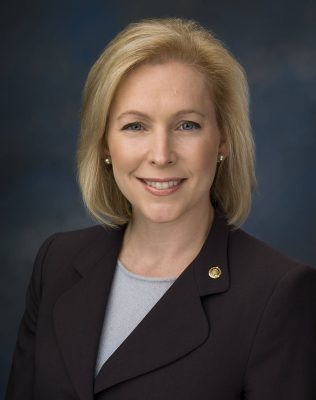2020 Policy Proposals: Gillibrand on Paid Family & Medical Leave

The need for paid family and medical leave — protected, paid time off for significant life events like childbirth, adoption, a worker’s own medical condition or that of a loved one — is increasingly making its way into public conversation.
Despite the associated benefits, which include higher workplace retention and productivity, increased financial security for family caregivers, and better health outcomes for young children, only 17 percent of civilian workers have access to paid family and medical leave.
The good news is elected officials, including presidential hopeful Senator Kirsten Gillibrand (D-NY), are paying more attention to the gap between the need and availability of paid family and medical leave. As part of her Family Bill of Rights, Gillibrand is proposing a new federal program that provides:
- Up to 12 weeks of paid time off for significant life events, including pregnancy, childbirth, one’s own serious health condition, or the serious health condition of a significant other
- 66 percent wage replacement, funded through shared employer/employee contributions
- Benefits to a variety of workers, including those who work part time or who are self-employed
Paid Family & Medical Leave in Colorado
Paid family and medical leave isn’t a new concept in Colorado. Most recently, a 2018 proposal would have:
- Provided all Coloradans with 12 weeks of paid family and medical leave
- Been equally funded by employer and employee contributions
- Created a progressive wage replacement system with low-income workers receiving up to 90 percent of their wages
An analysis of this proposal, conducted by the University of Denver, found:
- Approximately 130,000 Coloradans would benefit from the program each year
- On average, workers and their employers would contribute $4 per week to the program
- Employers would likely benefit from savings associated with increased worker morale and productivity and decreased worker training and hiring costs
An amended version of this bill passed the legislature this session, creating a task force that will make recommendations about how Colorado can implement a paid family and medical leave program. While not the hoped-for outcome, the bill’s passage still moves Colorado an important step closer toward offering workers a much-needed benefit.
The Bell’sWork on Paid Family & Medical Leave
Changing economic conditions — including a growing number of women in the workforce and a rise in contract work — require adjustments to how we provide supports for working Coloradans. Increasingly, these changing times call for the creation of portable benefits, ones that aren’t tied to an individual’s employer. A universally accessible, portable suite of benefits —including retirement, health care, and paid family and medical leave — allow workers to access the supports they need to thrive no matter who their employer is. The Bell understands the value of these programs and is dedicated to their creation and implementation in Colorado.
